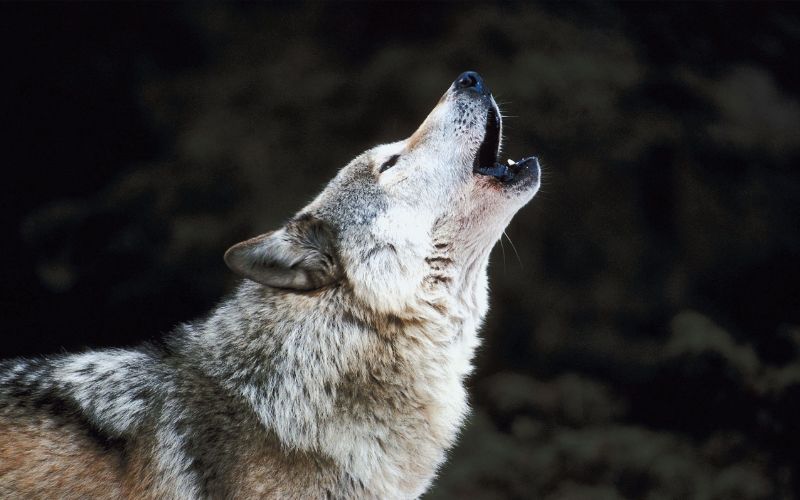
-
Details
-
From Kaili Mountain
-
The tragic story of a young wolf in Wyoming, known to some as Theia, has attracted widespread attention and outrage.
This one-year-old female wolf was run over by a 700-pound snowmobile. Her mouth was duct-taped shut and she was paraded through a local bar – still alive but severely injured – before being killed outside.
The brutality of this act has shocked many, but what is even more alarming is that it was completely legal. In Wyoming, gray wolves are not protected under the Endangered Species Act (ESA), leaving them vulnerable to such heinous acts.
Statistics show that wolves can be killed on sight in 85 percent of the state of Wyoming. This means that wolves, a species vital to the health of our ecosystems and culturally significant to many Native American communities, can be shot, captured, or even run over without fear of legal consequences.
Theia’s only chance for protection was a quicker death, as state laws focus on how quickly an animal is killed rather than the cruelty inflicted.
Wolves play a crucial role in maintaining the balance of ecosystems. As apex predators, they regulate populations of prey species such as deer and moose, which in turn helps prevent overgrazing and promote biodiversity.
The presence of wolves in an ecosystem can lead to a phenomenon called a “trophic cascade”: the consequences of their predatory behavior ripple throughout the ecosystem, benefiting numerous other species, including plants, birds and even fish.
The reintroduction of wolves to Yellowstone National Park in the 1990s is a prime example. Before the reintroduction of wolves, overgrazing by elk led to riverbank degradation and loss of vegetation. After the reintroduction of wolves, their predation of elk allowed vegetation to recover, stabilizing riverbanks and providing habitat for other wildlife.
For many Native American communities, wolves have deep cultural and spiritual significance. Wolves are often revered in Native American mythology and are seen as symbols of strength, loyalty and endurance. They are considered kin and their protection is closely linked to the preservation of cultural heritage.
The Ojibwe, for example, believe that wolves are their brothers and that the health of wolf populations is directly linked to the well-being of the tribe. The loss of wolves is not only an ecological tragedy, but also a cultural one, as it represents a loss of identity and connection to the land.
The lack of protection for wolves, as demonstrated by Theia’s tragic death, is not just a legal failure – it is also a failure to recognize the importance of wolves to our ecosystems and the cultural fabric of Native American communities.
The Endangered Species Coalition is working to change this, working with local partners in Wyoming and other states to push for stronger protections at the state and federal levels.
Their efforts include organizing letters of support from Congress for wolf protection, sending experts to Washington DC to advocate on behalf of these animals, and mobilizing hundreds of thousands of activists to put pressure on decision-makers.
Statistics show that entire ecosystems thrive when wolves are protected. When they are left unprotected, as is currently the case in Wyoming, the consequences are devastating – not only for the wolves themselves, but also for the health of the environment and the cultural identities associated with these majestic creatures.
More stories like this
Native News Weekly (August 25, 2024): DC News Briefs
Native News Weekly (August 4, 2024): DC Briefs
Bidaské natives with tribal president Jeff Stiffarm and Native American attorney Tom Rodgers
Trump speaks to the National Guard Association in Detroit
Following the release of the U.S. Department of the Interior’s final report, we at Native News Online took a moment to reflect on our three-year effort to bring the traumatic legacy of Native American boarding schools to the forefront. By covering all 12 Road to Healing events and publishing over 250 articles, we gave survivors a voice and illuminated the lasting impact on Indigenous communities. Our work continues. Please consider making a donation to support our ongoing coverage of Indian boarding schools.

